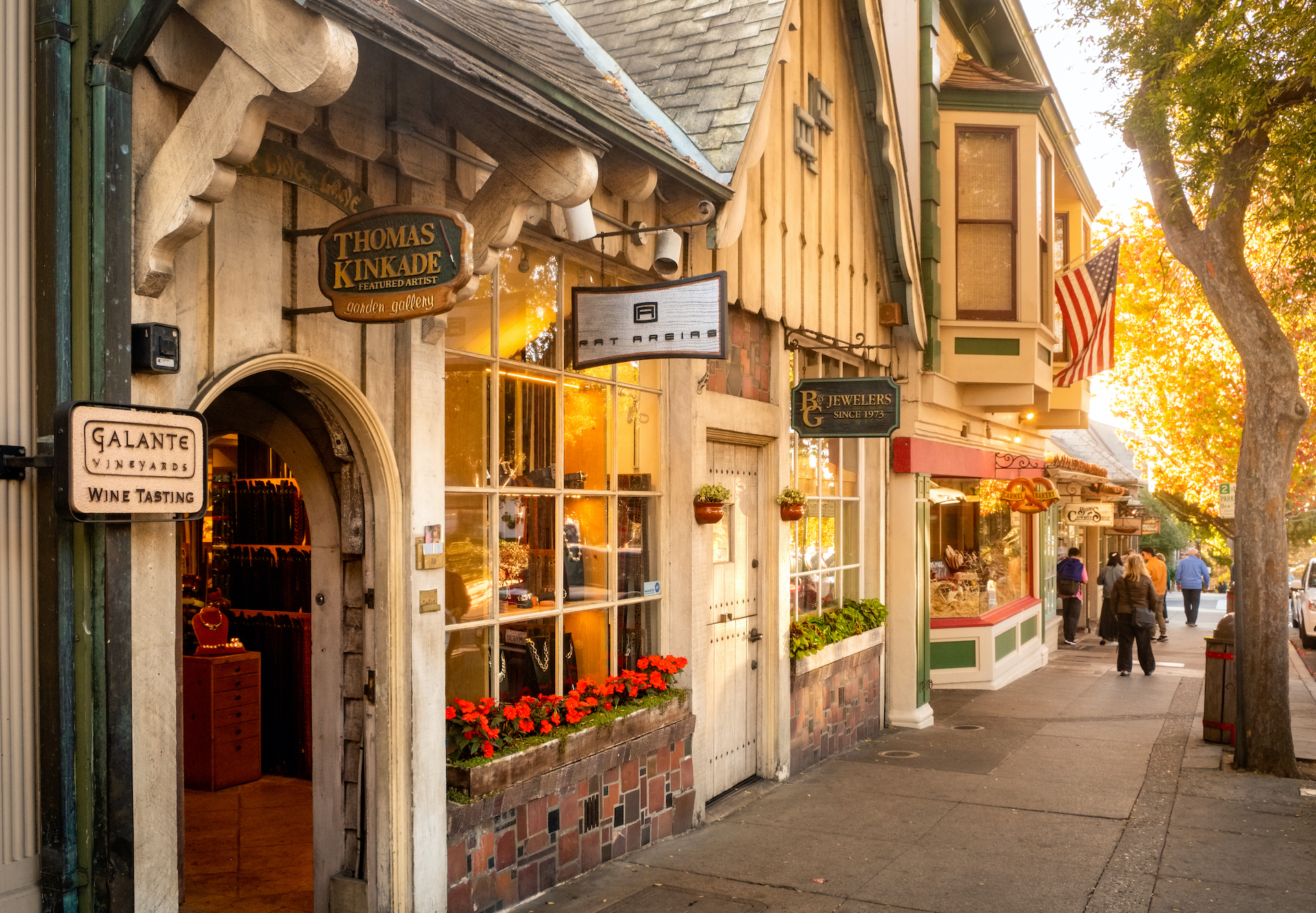Unlocking Opportunities in a Close-Knit Community
Starting a business in a small town can be a lucrative venture, offering a loyal customer base, lower overhead costs, and a stronger sense of community. Small towns often have a unique charm that attracts tourists and locals alike, providing a fertile ground for entrepreneurs to establish a successful business. To identify the unique needs and opportunities in a small town, it’s essential to conduct thorough market research and analyze the local economy.
One of the primary benefits of starting a business in a small town is the ability to build strong relationships with customers and establish a loyal client base. Small-town residents often prefer to support local businesses, which can lead to a steady stream of repeat customers. Additionally, small towns typically have lower overhead costs compared to larger cities, making it easier for entrepreneurs to establish a business with limited resources.
However, it’s crucial to understand the local demographics, economy, and lifestyle to determine the best business ideas for the town. For instance, a small town with a high percentage of retirees may benefit from businesses that cater to their needs, such as healthcare services or recreational activities. On the other hand, a small town with a growing family population may require businesses that offer childcare services, educational resources, or family-friendly entertainment.
By understanding the unique needs and opportunities in a small town, entrepreneurs can develop innovative business ideas that cater to the local community. This not only helps to establish a successful business but also contributes to the town’s economic growth and development. As the demand for unique products and services continues to grow, small towns can become hubs for entrepreneurship and innovation, providing opportunities for businesses to thrive and flourish.
In recent years, there has been a growing trend of entrepreneurs opening businesses in small towns, taking advantage of the unique opportunities and challenges that these communities present. From boutique hotels to artisanal food shops, small towns are becoming increasingly attractive to entrepreneurs who want to establish a business that makes a positive impact on the local community. By understanding the local market and developing innovative business ideas, entrepreneurs can unlock the full potential of small towns and create successful businesses that thrive for years to come.
How to Choose the Perfect Business for Your Small Town
When it comes to selecting a business idea for a small town, it’s essential to consider the town’s demographics, economy, and lifestyle. A business that aligns with these factors is more likely to thrive and attract a loyal customer base. To choose the perfect business for your small town, start by conducting market research to identify the needs and preferences of local residents.
One effective way to conduct market research is to analyze the town’s demographics, including the age, income, and occupation of residents. This information can help you identify potential business opportunities and tailor your products or services to meet the needs of your target market. For example, a small town with a high percentage of young families may benefit from businesses that offer childcare services, children’s clothing, or family-friendly entertainment.
In addition to demographics, it’s also important to consider the town’s economy and lifestyle. A small town with a strong agricultural industry may support businesses that offer farm-to-table products, while a town with a growing tourism industry may benefit from businesses that offer accommodations, dining, or recreational activities. By understanding the local economy and lifestyle, you can identify business opportunities that align with the town’s strengths and needs.
Another crucial factor to consider when choosing a business idea is competition. Analyze the local market to identify gaps in services or products and determine how your business can differentiate itself from existing competitors. This may involve offering unique products or services, providing exceptional customer service, or creating a strong online presence.
Some popular business ideas for small towns include retail stores, restaurants, and service-based businesses. However, it’s essential to choose a business idea that aligns with your passions, skills, and resources. By doing so, you can create a business that is not only successful but also fulfilling and enjoyable to operate.
When evaluating business ideas for a small town, consider the following factors:
- Market demand: Is there a demand for the product or service in the local market?
- Competition: How will your business differentiate itself from existing competitors?
- Resources: Do you have the necessary resources, including funding, equipment, and personnel, to launch and operate the business?
- Passion: Are you passionate about the business idea and committed to its success?
By carefully evaluating these factors and choosing a business idea that aligns with the town’s demographics, economy, and lifestyle, you can increase your chances of success and create a thriving business in a small town.
Service-Based Businesses: Meeting the Needs of Local Residents
Service-based businesses are an excellent way to cater to the needs of local residents in a small town. These types of businesses offer personalized services that can help improve the quality of life for residents, making them an attractive option for entrepreneurs looking to start a business in a small town.
One of the most significant advantages of service-based businesses is their ability to provide tailored services that meet the specific needs of local residents. For example, home cleaning services can offer customized cleaning plans that cater to the unique needs of each household. Similarly, pet grooming services can provide personalized grooming sessions that cater to the specific needs of each pet.
Some popular service-based business ideas for small towns include:
- Home cleaning services: Offer customized cleaning plans that cater to the unique needs of each household.
- Pet grooming services: Provide personalized grooming sessions that cater to the specific needs of each pet.
- Lawn care services: Offer lawn maintenance services that include mowing, pruning, and fertilizing.
Service-based businesses can also provide a range of benefits to local residents, including:
- Convenience: Service-based businesses can provide convenient services that save time and effort for local residents.
- Personalization: Service-based businesses can offer personalized services that cater to the unique needs of each resident.
- Support for local economy: Service-based businesses can help support the local economy by providing jobs and stimulating economic growth.
To start a successful service-based business in a small town, it’s essential to:
- Conduct market research: Identify the needs and preferences of local residents to determine the most in-demand services.
- Develop a business plan: Create a comprehensive business plan that outlines your goals, target market, and marketing strategy.
- Build a strong team: Hire a team of skilled and experienced professionals who can provide high-quality services to local residents.
By providing personalized services that cater to the needs of local residents, service-based businesses can thrive in small towns and provide a range of benefits to the local community.
Foodie Favorites: Restaurants, Cafes, and Bakeries that Thrive in Small Towns
Food-based businesses are a staple in small towns, providing a gathering place for locals and tourists alike. Restaurants, cafes, and bakeries are popular options for entrepreneurs looking to start a business in a small town, and for good reason. These types of businesses offer a unique opportunity to showcase local flavors and ingredients, while also providing a welcoming atmosphere for customers.
One of the key benefits of opening a food-based business in a small town is the ability to create a unique dining experience that showcases local flavors and ingredients. This can be achieved by sourcing ingredients from local farmers and suppliers, and by creating menus that reflect the town’s cultural heritage. For example, a restaurant in a small town with a strong Italian-American influence might offer traditional Italian dishes made with locally-sourced ingredients.
Another benefit of food-based businesses in small towns is the opportunity to create a welcoming atmosphere that attracts tourists and locals alike. This can be achieved by creating a cozy and inviting dining area, and by offering exceptional customer service. For example, a bakery in a small town might offer freshly-baked pastries and bread, along with a warm and welcoming atmosphere that makes customers feel at home.
Some popular food-based business ideas for small towns include:
- Restaurants: Offer a unique dining experience that showcases local flavors and ingredients.
- Cafes: Provide a welcoming atmosphere and a variety of coffee and tea options.
- Bakeries: Offer freshly-baked pastries and bread, along with a warm and welcoming atmosphere.
- Food trucks: Offer a unique and convenient dining experience that can be easily moved to different locations.
To start a successful food-based business in a small town, it’s essential to:
- Conduct market research: Identify the local demand for different types of food-based businesses, and determine the best location for your business.
- Develop a business plan: Create a comprehensive business plan that outlines your goals, target market, and marketing strategy.
- Obtain necessary permits and licenses: Make sure you have all the necessary permits and licenses to operate a food-based business in your small town.
By creating a unique dining experience that showcases local flavors and ingredients, food-based businesses can thrive in small towns and provide a welcoming atmosphere for customers.
Retail Revival: Unique Storefronts that Bring Character to Main Street
Independent retailers are the backbone of small towns, providing a unique shopping experience that attracts tourists and locals alike. From boutiques to antique shops, specialty stores to art galleries, these businesses bring character to Main Street and help to create a thriving downtown area.
One of the key benefits of independent retailers in small towns is their ability to offer a personalized shopping experience. Unlike big-box stores, independent retailers can tailor their products and services to meet the specific needs of their customers. This can include offering customized products, providing expert advice, and creating a welcoming atmosphere that makes customers feel at home.
Another benefit of independent retailers in small towns is their ability to support the local economy. By sourcing products from local suppliers and hiring local employees, independent retailers can help to keep money within the community. This can have a positive impact on the local economy, creating jobs and stimulating economic growth.
Some popular independent retail business ideas for small towns include:
- Boutiques: Offer unique and stylish clothing, accessories, and gifts.
- Antique shops: Sell vintage and antique items, including furniture, collectibles, and memorabilia.
- Specialty stores: Offer specialized products and services, such as outdoor gear, pet supplies, or home decor.
- Art galleries: Showcase local artwork, including paintings, sculptures, and photography.
To create a unique shopping experience that attracts tourists and locals alike, independent retailers in small towns should focus on:
- Offering personalized products and services.
- Creating a welcoming atmosphere that makes customers feel at home.
- Supporting the local economy by sourcing products from local suppliers and hiring local employees.
- Developing a strong online presence to attract customers from outside the area.
By offering a unique shopping experience and supporting the local economy, independent retailers in small towns can help to create a thriving downtown area that attracts tourists and locals alike.
Home-Based Businesses: Turning Your Passion into a Profit
Home-based businesses are a great way to turn your passion into a profit, especially in small towns where overhead costs are lower. With the rise of remote work and digital communication, it’s easier than ever to start a business from the comfort of your own home.
One of the benefits of home-based businesses is the low overhead costs. Without the need for a physical storefront or office space, entrepreneurs can save money on rent, utilities, and other expenses. This allows them to focus on developing their products or services and building their brand.
Another benefit of home-based businesses is the flexibility they offer. With the ability to work from anywhere, entrepreneurs can create a schedule that works for them and their family. This is especially important in small towns where family and community ties are strong.
Some popular home-based business ideas for small towns include:
- Freelance writing or editing: Offer writing or editing services to clients on a freelance basis.
- Graphic design: Create visual content for clients, including logos, brochures, and websites.
- Handmade crafts: Sell handmade products, such as jewelry, candles, or textiles, online or at local markets.
- Virtual assistance: Offer virtual assistant services, including email management, social media management, and data entry.
To start a successful home-based business in a small town, it’s essential to:
- Identify your niche: Determine what products or services you want to offer and who your target market is.
- Create a business plan: Develop a comprehensive business plan that outlines your goals, target market, and marketing strategy.
- Build a strong online presence: Create a professional website and social media accounts to showcase your products or services and connect with customers.
- Network with local business owners: Connect with other business owners in your community to build relationships and find opportunities for collaboration.
By turning your passion into a profit, home-based businesses can be a great way to start a business in a small town. With low overhead costs and flexible work arrangements, entrepreneurs can focus on building their brand and creating a successful business.
Sustainable Businesses: Eco-Friendly Ventures that Support the Local Environment
Sustainable businesses are becoming increasingly popular in small towns, as residents and visitors alike seek out eco-friendly products and services. From recycling services to organic farming, sustainable businesses can help reduce carbon footprint and support the local environment.
One of the benefits of sustainable businesses in small towns is their ability to create jobs and stimulate economic growth while also promoting environmental sustainability. For example, a recycling service can create jobs for local residents while also reducing waste and promoting recycling.
Another benefit of sustainable businesses in small towns is their ability to attract tourists and visitors who are interested in eco-friendly products and services. For example, an organic farm can offer tours and workshops, attracting visitors who are interested in sustainable agriculture.
Some popular sustainable business ideas for small towns include:
- Recycling services: Offer recycling services for paper, plastic, glass, and other materials.
- Organic farming: Grow organic fruits and vegetables, and offer tours and workshops.
- Eco-friendly products: Sell eco-friendly products, such as reusable bags, beeswax wraps, and refillable water bottles.
- Renewable energy: Install solar panels or wind turbines to generate renewable energy.
To start a successful sustainable business in a small town, it’s essential to:
- Conduct market research: Identify the demand for sustainable products and services in your small town.
- Develop a business plan: Create a comprehensive business plan that outlines your goals, target market, and marketing strategy.
- Build a strong online presence: Create a professional website and social media accounts to showcase your sustainable products and services.
- Network with local business owners: Connect with other business owners in your community to build relationships and find opportunities for collaboration.
By supporting the local environment and reducing carbon footprint, sustainable businesses can thrive in small towns and create a positive impact on the community.
Getting Started: Tips for Launching a Successful Small-Town Business
Starting a business in a small town can be a challenging but rewarding experience. With the right planning and preparation, entrepreneurs can overcome common obstacles and build a successful business that thrives in the local community.
One of the most important steps in launching a successful small-town business is securing funding. This can be achieved through a variety of means, including loans, grants, and crowdfunding. It’s essential to research and explore all available options to determine the best fit for your business.
Another crucial step is building a strong online presence. This includes creating a professional website and social media accounts to showcase your products or services and connect with customers. A strong online presence can help you reach a wider audience and attract new customers to your business.
Networking with local business owners is also essential for building a successful small-town business. Attend local business events, join the chamber of commerce, and connect with other entrepreneurs in your community to build relationships and find opportunities for collaboration.
Some additional tips for launching a successful small-town business include:
- Conduct market research: Identify the needs and preferences of your target market to determine the best products or services to offer.
- Develop a business plan: Create a comprehensive business plan that outlines your goals, target market, and marketing strategy.
- Build a strong team: Hire a team of skilled and experienced professionals who can help you launch and grow your business.
- Stay adaptable: Be prepared to pivot your business plan if something isn’t working, and stay flexible to changes in the market.
By following these tips and staying focused on your goals, you can launch a successful small-town business that thrives in the local community.






